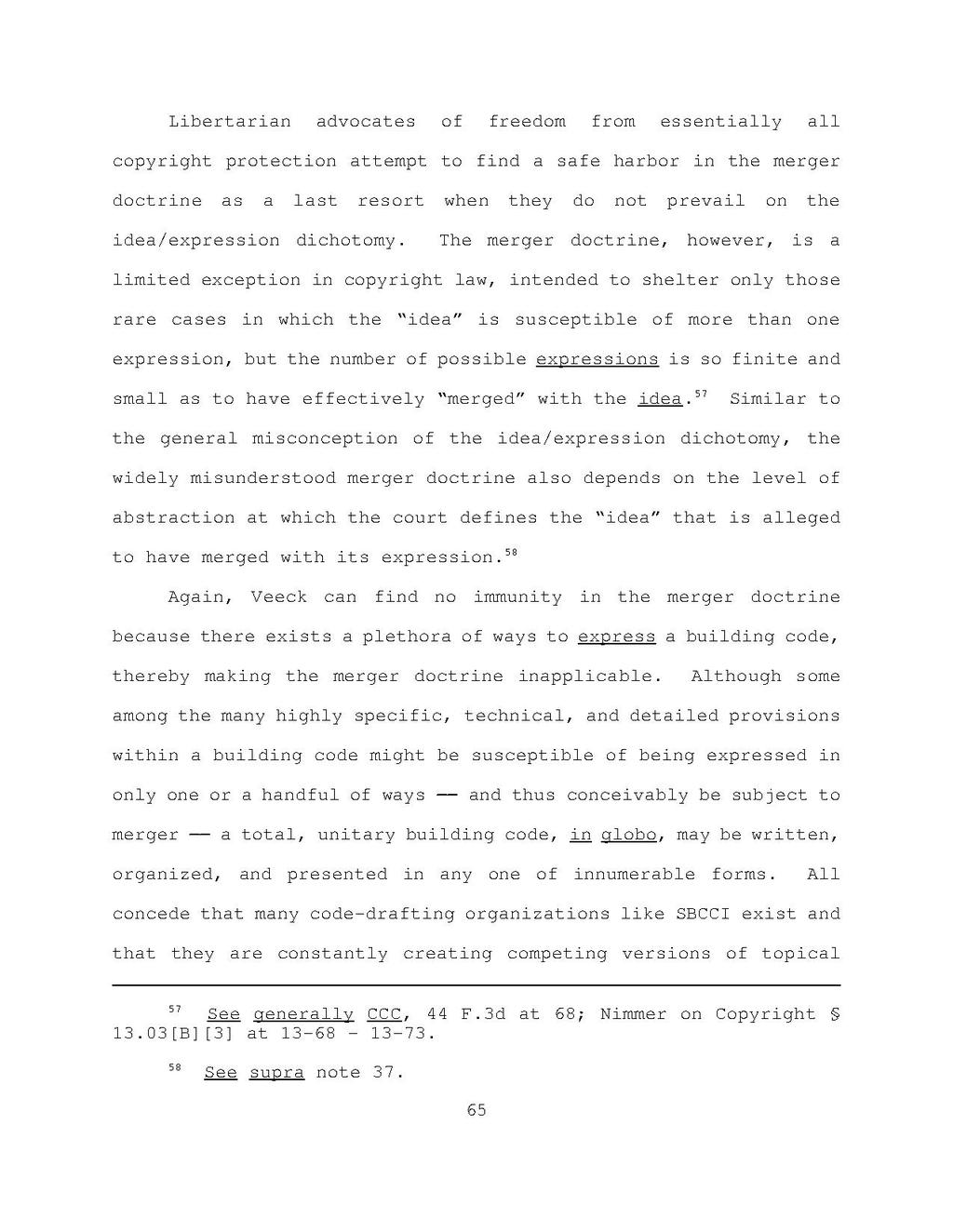Libertarian advocates of freedom from essentially all copyright protection attempt to find a safe harbor in the merger doctrine as a last resort when they do not prevail on the idea/expression dichotomy. The merger doctrine, however, is a limited exception in copyright law, intended to shelter only those rare cases in which the "idea" is susceptible of more than one expression, but the number of possible expressions is so finite and small as to have effectively "merged" with the idea.[1]Similar to the general misconception of the idea/expression dichotomy, the widely misunderstood merger doctrine also depends on the level of abstraction at which the court defines the "idea" that is alleged to have merged with its expression.[2]
Again, Veeck can find no immunity in the merger doctrine because there exists a plethora of ways to express a building code, thereby making the merger doctrine inapplicable. Although some among the many highly specific, technical, and detailed provisions within a building code might be susceptible of being expressed in only one or a handful of ways—and thus conceivably be subject to merger—a total, unitary building code, in globo, may be written, organized, and presented in any one of innumerable forms. All concede that many code-drafting organizations like SBCCI exist and that they are constantly creating competing versions of topical
65
